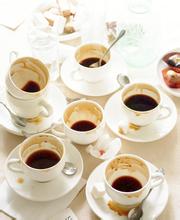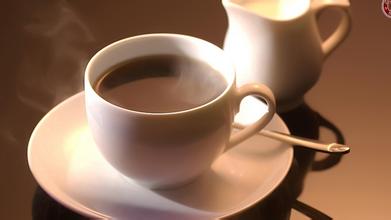Flavor and taste characteristics of Jamaican Coffee Manor introduction to Silver Mountain Manor with fine coffee beans
Located in the northwest of the Caribbean Sea, Jamaica is an island country at 17.42 degrees north latitude and 18.31 degrees north longitude and 76.11 degrees to 78.22 degrees west longitude. [1] the island of Jamaica is 234km long from east to west and 82km wide from north to south, with a territorial area of 11420 square kilometers, of which the land area is 10991 square kilometers. To the east across the Strait of Jamaica, facing Haiti, about 140 kilometers north of Cuba. It is the third largest island in the Caribbean, with a coastline of 1220 kilometers. Jamaica ranks third in the West Indies, second only to Cuba and Haiti. [2]
Topography
The coastal areas are alluvial plains. Such as: Guaneya plain; mountains in the east, hills and limestone plateaus in the middle and west. Karst landforms are well developed, lack of surface runoff and many caves. [2]
Climate
Tropical rainforest climate. The rainy season is from May to June and from September to November every year, with the most showers in January and May. The dry season is from December to March next year, and the weather turns cooler. The half-year period from June to the end of November is often hit by hurricanes and tropical storms. The north-central region is rich in rainfall, the climate is generally between 22 and 32 degrees, and the annual average temperature is 27 degrees. [6]
Resources
Jamaica's resources are mainly bauxite, with reserves of about 2.5 billion tons, ranking fourth in the world, with an exploitable capacity of 1.5 billion tons and an annual output of 15 million tons of bauxite, second only to Australia. [2] other rich resources include copper, iron, lead, zinc and gypsum. The forest area is 265000 hectares.
Administrative division editor
Zoning
The country is divided into three counties: Cornwall, Middlesex and Surrey. The three counties are further divided into 14 districts, of which Kingston and St. Andrews form a joint district, so there are actually only 13 district governments. The names of the districts are as follows: United District of Kingston and St. Andrew, St. Thomas, Portland, St. Mary, Santa Ana, Trelawney, St. James, Hanover, Westmorland, St. Elizabeth, Manchester, Clarendon, St. Catherine.
The United States is a coffee-loving country, but the reporter did not find any "coffee beauty" in several major supermarket chains and Starbucks coffee shops in Houston. According to a waiter at a Starbucks coffee shop in downtown Houston, their coffee is mainly made from beans from Africa, Colombia or Indonesia. Blue Mountain Coffee is less on the market, and 90% of Blue Mountain Coffee is owned by the Japanese. At present, the "Blue Mountain style" coffee seen on the market does not contain a positive blue mountain coffee bean. One kind of "Jamaican mixed Blue Mountain" coffee is a mixture of 30% Blue Mountain Coffee and 70% of the best Jamaican Alpine Coffee. The above two kinds of coffee try to imitate the taste of Blue Mountain Coffee, but can not reach the perfect level. In addition, the processing and production of Blue Mountain Coffee is also very elegant. Strict and detailed standards have been established for processing, baking and packaging, and there are regulations on what kind of organic fertilizers are needed during the growth period. All are harvested manually at harvest time. Jamaica is also the last country to still transport coffee in traditional wooden barrels.
Only through this series of stringent standards set by the Jamaica Coffee Industry Authority, can coffee obtain a guarantee issued by the government, officially known as "Blue Mountain". Blue Mountain Coffee can maintain its status as the best today, and is also closely related to the local business policy. In 1932, Jamaica adopted a policy to encourage coffee production to reduce the island's dependence on sugar exports. Unlike most coffee-producing countries, the local government does not plant a large number of high-quality and poor-quality coffee in order to increase output, but to give priority to quality, preferring to sacrifice the output of coffee to ensure the quality of Blue Mountain coffee. Therefore, Jamaica is currently one of the countries with low coffee production in the world. Brazil, the world's largest coffee exporter, produces 30 million bags of coffee a year, while Blue Mountain Coffee produces only about 40, 000 bags a year.

Important Notice :
前街咖啡 FrontStreet Coffee has moved to new addredd:
FrontStreet Coffee Address: 315,Donghua East Road,GuangZhou
Tel:020 38364473
- Prev

Introduction to Atlanta Manor, Coffee Manor in Jamaica
In 1670, according to the Madrid Treaty, Spain formally ceded Jamaica and other places to Britain. The British immediately used the island of Jamaica as a base for their acts of piracy. Before the earthquake destroyed the port of Loire in 1692, it was once the capital of pirates in the Caribbean. Since then, the British built Kingston and gradually built it into the central city of Jamaica. Jamaica Bamboo Forest
- Next

Flavor and taste characteristics of Jamaican coffee manor introduction of high-quality coffee beans
In the decades after 1872, Jamaica's economy gradually prospered, but its social and cultural development was always suppressed by the colonial authorities. Especially during the Great Depression, all walks of life in Jamaica were very dissatisfied with the depressed social situation. In 1938, workers in Jamaica revolted. After that, the colonial authorities were forced to grant local autonomy. In 1944, the first of Jamaica
Related
- Does Rose Summer choose Blue, Green or Red? Detailed explanation of Rose Summer Coffee plots and Classification in Panamanian Jade Manor
- What is the difference between the origin, producing area, processing plant, cooperative and manor of coffee beans?
- How fine does the espresso powder fit? how to grind the espresso?
- Sca coffee roasting degree color card coffee roasting degree 8 roasting color values what do you mean?
- The practice of lattes: how to make lattes at home
- Introduction to Indonesian Fine Coffee beans-- Java Coffee producing area of Indonesian Arabica Coffee
- How much will the flavor of light and medium roasted rose summer be expressed? What baking level is rose summer suitable for?
- Introduction to the characteristics of washing, sun-drying or wet-planing coffee commonly used in Mantenin, Indonesia
- Price characteristics of Arabica Coffee Bean Starbucks introduction to Manning Coffee Bean Taste producing area Variety Manor
- What is the authentic Yega flavor? What are the flavor characteristics of the really excellent Yejasuffi coffee beans?

